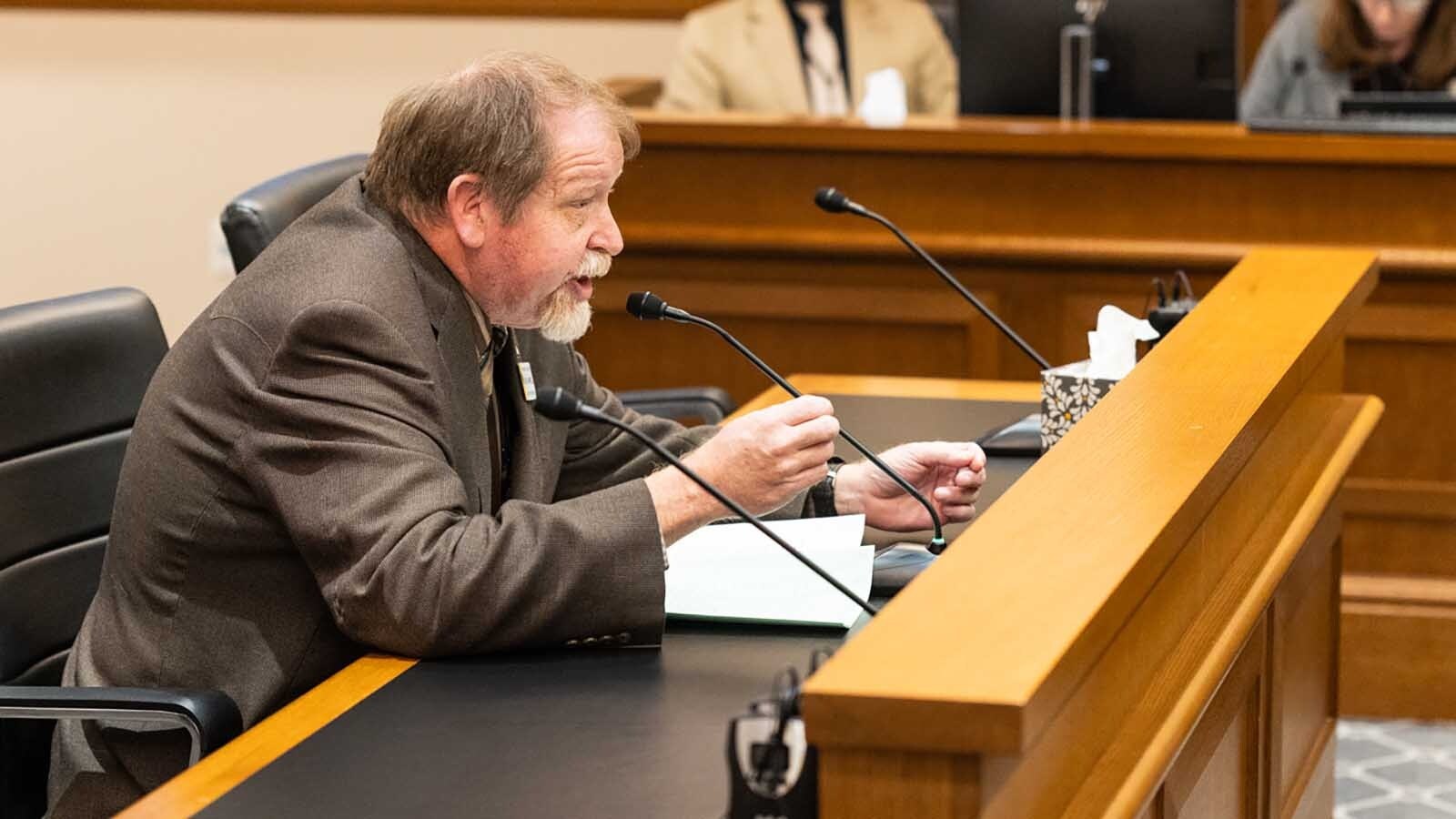The California Supreme Court officially ended the drawn-out legal battle holding up development of an export terminal in West Oakland on Wednesday, refusing to hear the city of Oakland’s appeal and effectively paving the way forward for the project.
Coal producers in Wyoming are watching this project closely because it could offer access to Asian markets.
One of the project’s developers, Phil Tagami, responded to the news by praising the justices.
“Thank God, even in a very liberal state, the judges did not play,” said Tagami, referring to the progressive politics driving local opposition to coal exports.
Tagami estimated there’s around 2.5 years’ worth of permitting and other work ahead, but the first cargo ship could leave the new Oakland port sometime in 2028.
One of the project’s biggest critics, Ted Franklin with the group No Coal In Oakland, said he knew the city of Oakland's final legal gambit was always a long shot.
"Most petitions to the (California) Supreme Court's review are denied," the retired labor attorney told Cowboy State Daily on Thursday. "It's basically a moon shot for a lot of cases to get the supreme court interested."
On Wednesday afternoon, that moon shot crashed back to earth. Franklin received an automated email notification that the court had denied the city's petition for review of the Oakland Bulk and Oversized Terminal (OBOT). After nearly a decade of litigation involving 33 judges and 310 pages of court documents, the legal battle was finally over.
Fight On
In the courts, said Franklin, “It’s pretty much case closed.” But he described Wednesday’s news as not the end of his group’s work, but a pivot point.
"The developers now have a new lease on life, renewing the danger of a coal terminal coming to Oakland should anyone want to finance such a venture knowing that the project will face stiff community resistance and potential legal challenges," the organization stated Wednesday.
While activists in Oakland regroup, coal producers in Wyoming are looking for opportunities to capitalize on the opening of a west coast export facility for coal.
Emily Arthun, CEO of the American Coal Council, views the legal outcome differently. She described the Oakland terminal's legal victory as representing "the best current opportunity for Wyoming coal exports after years of political and legal obstacles."
On Thursday, she told Cowboy State Daily that, “This ruling is a major victory — not just for coal, but for common sense.”
Like other OBOT supporters, Arthun looks back on the last decade and sees a series of “legal roadblocks. Yesterday’s notice from the California Supreme Court moved the project beyond the last one.
“The courts have affirmed what we’ve known all along: coal belongs on the west coast,” said Arthun. “The Oakland terminal will unlock global markets, strengthen our industrial base, and give American workers the opportunity they’ve earned.”
Wyoming's coal industry shares this enthusiasm.
"The demand for Wyoming coal is there, and we will continue to work to get it to those overseas markets,” said Travis Deti, executive director of the Wyoming Mining Association.
Terminal Vision
Tagami and his partner Mark McClure see OBOT as far more than a coal facility. In recent interviews, they described their vision for what the terminal could become.
"Development of a multi-commodity bulk marine terminal was essential to the revitalization of the former Oakland Army base and was literally the anchor to attract substantial investment by the state of California and infrastructure, as well as federal dollars to, in essence, redevelop that property," Tagami explained.
McClure, who oversees the rail operations, emphasized the terminal's strategic advantages.
"The facility is both Union Pacific and BNSF served," he said. "The Union Pacific controls the mainline into the Port of Oakland. And Union Pacific also has good rail infrastructure going into the Powder River Basin, Utah, Arizona, Nevada. So a lot of mining states."
The rail system they've developed would handle "literally the last mile" of cargo movement, McClure said, with an initial capacity of "probably 8 to 10 million tons" annually.
Still A Hard 'No'
For Franklin and No Coal In Oakland, Wednesday’s supreme court decision inspired reflection back to 2015, when coal exports from Utah first surfaced.
Looking ahead, Franklin said his group will concentrate on deterring investors from backing OBOT.
"We're starting over," Franklin said. "We managed to prevent this with this Utah effort to bring coal here. That was underway, and the terminal was supposed to have been operational, I think, by 2017,” said Franklin, pointing to the project's mounting costs as a deterrent to investors.
Originally estimated at $250 million in 2015, he calculates the terminal would now cost $350 to $400 million to build. He cited the cautionary tale of John Siegel, founder of Insight Terminal Solutions, who lost $27 million pursuing the Oakland coal terminal dream, according to Franklin.
"That's a warning," Franklin said, offering a pointed message for Wyoming readers, particularly those who see coal exports as a long-term economic win.
He said: "Wyoming has a beautiful future. And ultimately, coal will not be part of it."
The opposition group's strategy moving forward centers on what Franklin calls "educating the potential investors that this is not a wise investment" by raising awareness about coal's contribution to climate change and the risks facing the project.
"This is just the beginning of another fight," Franklin said. "If there is an effort to bring Wyoming coal here, it will continue to face unrelenting opposition from the people of Oakland, the Bay Area and California."
David Madison can be reached at david@cowboystatedaily.com.





